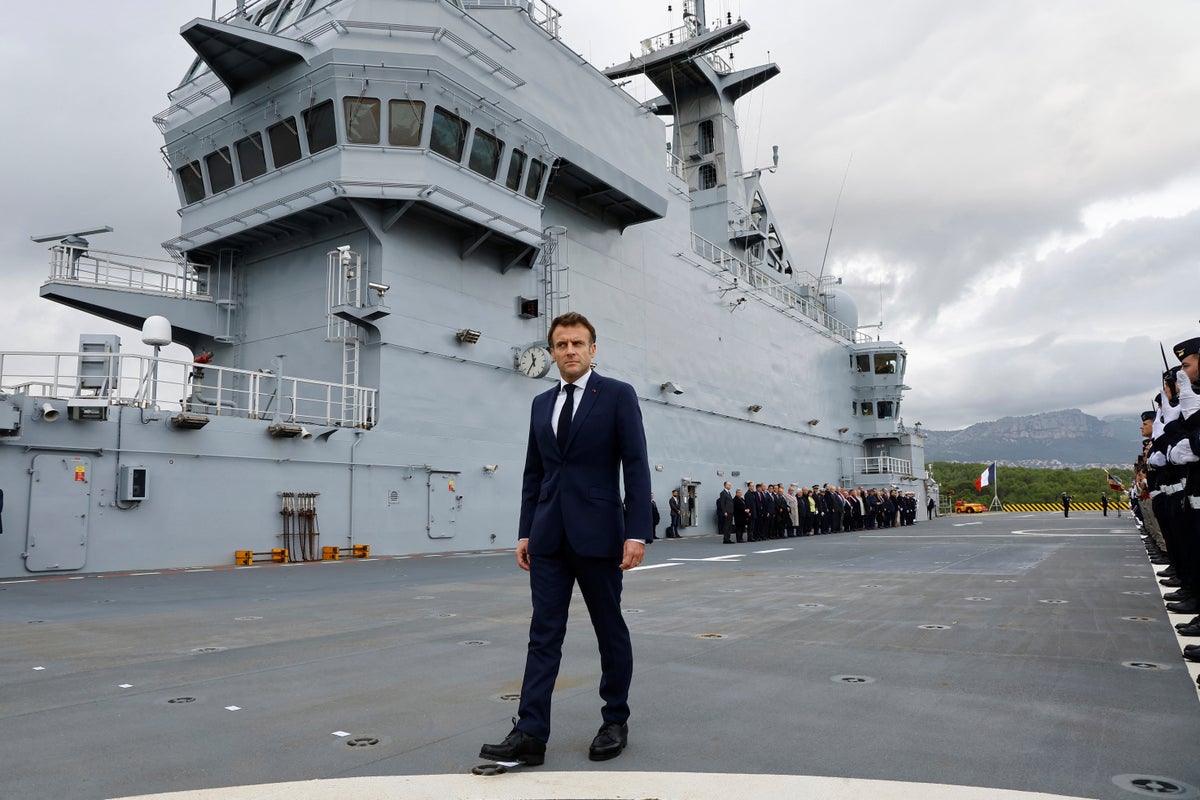
French President Emmanuel Macron is to unveil Wednesday the country's military strategy through the end of the decade for his nuclear-armed country, in the midst of Russia’s war in Ukraine.
Macron is to make a speech on the Dixmude helicopter carrier, docked in the Mediterranean military base of Toulon, which is home to more than 24,000 troops. He will then be airlifted to France’s newest nuclear attack submarine, the Suffren, before meeting with some elite Navy commando members.
France’s so-called "national strategic review" is meant to define how the country's defense will look in 2030 — but it won't mention budget details, which are to be provided in a later bill.
According to a French top military official, the new strategy will allow France to “reaffirm its ambition to be a balancing power by 2030 on the international scene,” with a strengthened global influence. The official spoke anonymously in line with the French presidency's practices.
As war is back on the European continent, France wants to focus on boosting the European Union's defense capacity building — the bloc of 27 nations' s security is still largely dependent on the U.S. and NATO.
“The war in Ukraine allowed us to move forward considerably on European defense,” the French official said. “We now are in a situation where France is the only country of the European Union with the nuclear weapon. It gives us a special responsibility."
In rare public comments about France’s nuclear doctrine, Macron recently spoke about its implementation in the context of the war in Ukraine, suggesting a potential nuclear ballistic attack from Russia in the region would not bring any nuclear response from Paris.
France’s doctrine “is based on what we call the fundamental interests of the nation. ... They would not at all be at stake" in such situation, he said on French television last month.
France's new strategic document provides that the country will maintain a “robust and credible nuclear dissuasion” and a “capacity to lead military operations, including those of high intensity, alone or within a coalition."
French troops will also maintain their large presence abroad in an area stretching from sub-Saharan Africa to the Middle-East, through the Horn of Africa.
Macron’s speech will mark the formal end of the so-called Barkhane force after France withdrew its troops from Mali earlier this year following tensions with the ruling junta.
French operations to help fighting Islamic extremists Africa's Sahel region are focusing on Niger, Chad and Burkina Faso, where the country has about 3,000 troops. France in the future aims at working “in partnership” with the concerned countries and at reducing the “exposure and visibility” of its troops to focus on support in terms of equipment, training and intelligence, the French official said.
Amid other strategic goals, France aims at contributing to the stability of the Indo-Pacific zone and at ensuring freedom of action in “global common spaces” including deep seabed, high seas, outer space and cyberspace.







